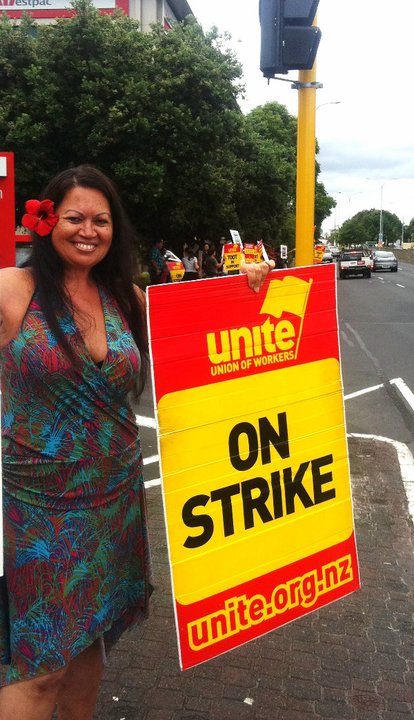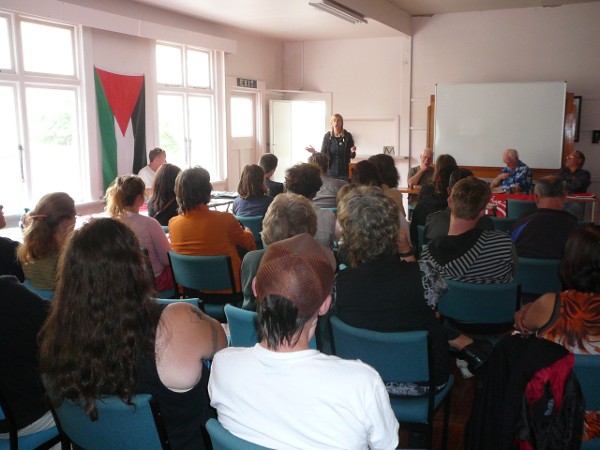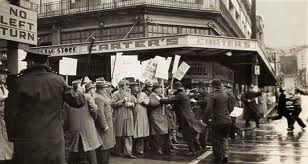Byron Clark (member of Christchurch branch of WP and The Spark editorial committee)
Fijian migrant workers who paid up to $17,000 for visas to work in New Zealand ended up foraging maize from a paddock to feed themselves. Stacey Watson, of Piopio, Waikato, who sourced workers from recruitment company ‘Til Da Cows Come Home’ told Waikato Times journalist Nicola Boyes “We were noticing that the guys didn’t have anything to eat and they didn’t have any supplies and they were foraging for maize to eat.” Til Da Cows Come Home is one of two recruitment companies ran by Mike Neil Molan, who recently pleaded guilty to one charge of forgery and one charge of misleading an immigration officer after a sting at the offices of his company and other related Auckland-based immigration consultants. According to what the company told Stacy Watson, the workers wages were paid into a trust that they could access after they had completed their twelve weeks training and their work visas had been approved. In reality, the visa applications were forged and the dairy industry jobs that workers were promised would be waiting for them at the end of their training never existed. Molan’s ex-wife Nikkie, who was a director of the now defunct second company, Cow Tech, said she got wind of the scam in about November 2008 and confronted Molan. The scam had been going since June or July of that year “It was just a way of getting cash out of people.” she said.
 Manju Pillay was employed as accounts and administration manager at Cow Tech for three months. She paid $6000 of Molan’s $12,736 bill for residency and a work permit before questioning its legitimacy and returning to Fiji. She was never paid for her work. Cow Tech went into liquidation three months after she started working for it and she contacted the Immigration Department. Molan worked with Auckland based IMAC Recruitment and Romy’s Immigration, which have since been struck off the company’s register. This is not the first case of its kind, last year four Hawkes Bay men were sentenced to three years in jail for running a multi-million dollar operation that employed hundreds of undocumented workers to pick fruit and vegetables at well below the minimum wage. Between 2007 and 2010 eighteen people in Hawkes Bay, Nelson and Marlborough were prosecuted as a result of Immigration New Zealand investigations. In 2007 it was estimated that there were 20,000 undocumented workers in New Zealand.
Manju Pillay was employed as accounts and administration manager at Cow Tech for three months. She paid $6000 of Molan’s $12,736 bill for residency and a work permit before questioning its legitimacy and returning to Fiji. She was never paid for her work. Cow Tech went into liquidation three months after she started working for it and she contacted the Immigration Department. Molan worked with Auckland based IMAC Recruitment and Romy’s Immigration, which have since been struck off the company’s register. This is not the first case of its kind, last year four Hawkes Bay men were sentenced to three years in jail for running a multi-million dollar operation that employed hundreds of undocumented workers to pick fruit and vegetables at well below the minimum wage. Between 2007 and 2010 eighteen people in Hawkes Bay, Nelson and Marlborough were prosecuted as a result of Immigration New Zealand investigations. In 2007 it was estimated that there were 20,000 undocumented workers in New Zealand.
There has also been concern about migrant workers who have worked legally under the Recognised Seasonal Employer scheme. Such workers have been left with little money in the hand after deductions are made from their wages and large sums are paid to unscrupulous accommodation providers- last year a 4-bedroomed house calling itself a “backpackers” housed eighteen Ni-Vanuatu workers and charged them $115 each per week. Lina Ericsson a Swedish political scientist who conducted field work among RSE workers in the rural areas near Tauranga in 2007 found many stories of mistreatment and violation of employment rights. The majority of farm workers (60%) are employed without contracts, almost a year ago the Council of Trade Unions highlighted the need for a farm workers union. At the moment such a project seems elusive when over 85 percent of private sector workers aren’t unionised.
Not only are the conditions of migrant farm workers morally
outrageous. It’s beneficial for all workers in New Zealand to support the cause of such workers because the employment standards set by these most immoral employers impact on the conditions of the whole working class.






